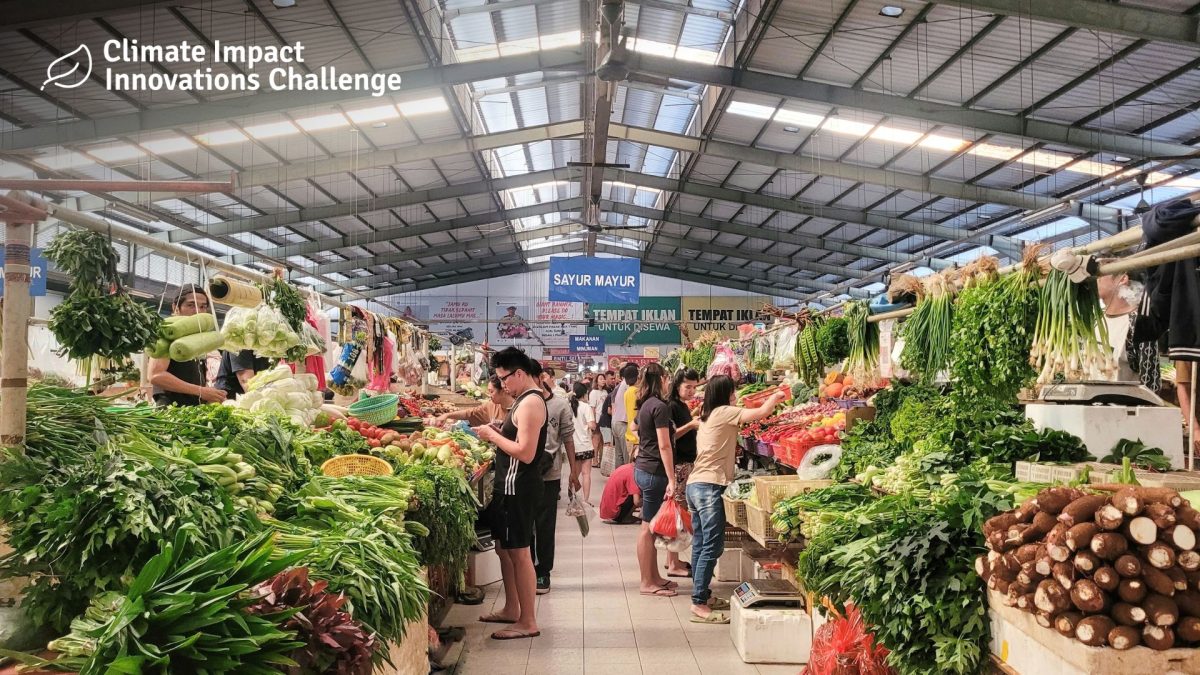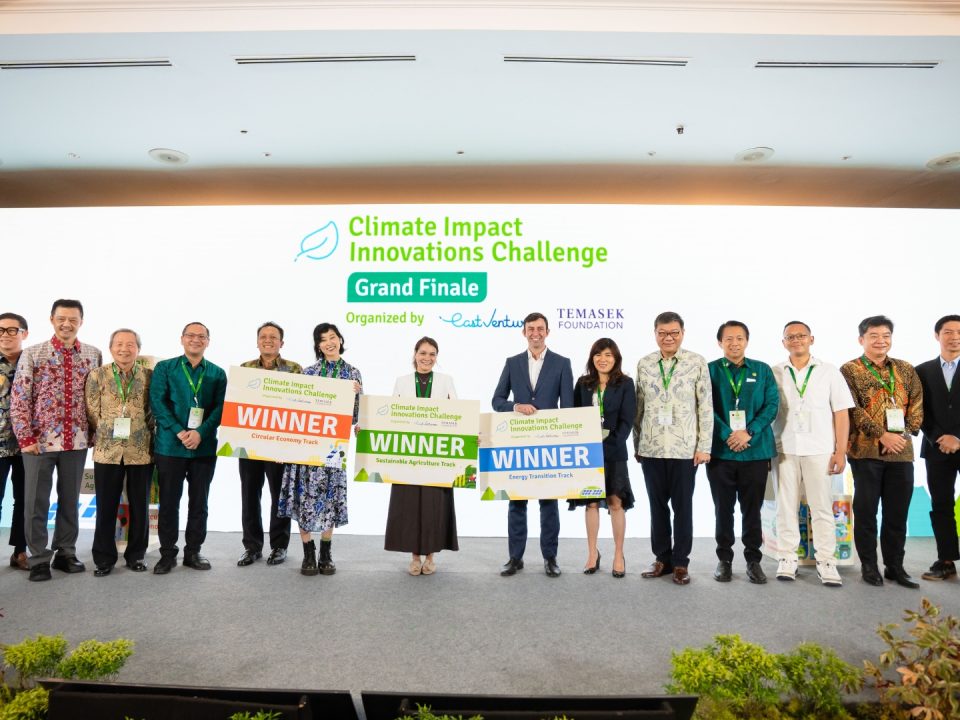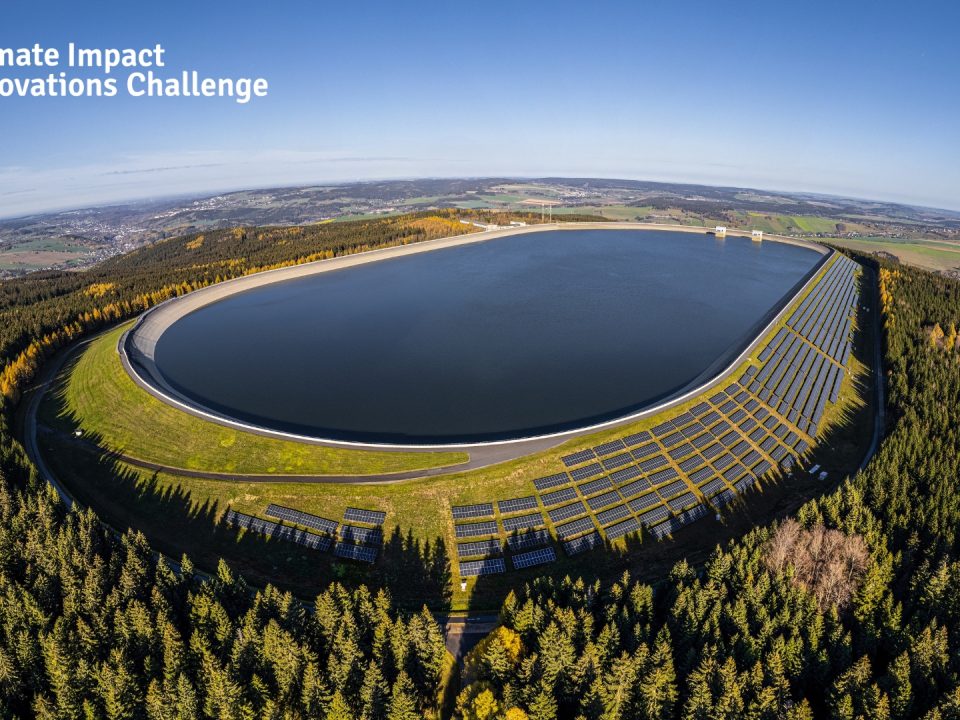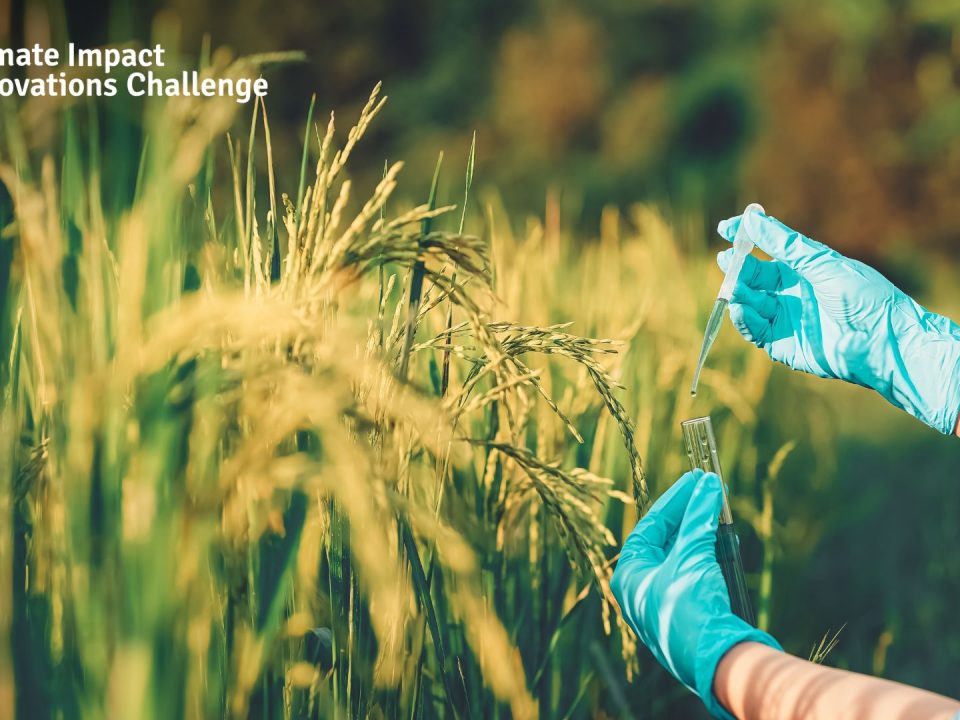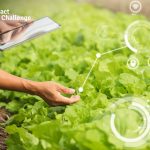
From Information to Innovation: A Climate-Smart Platform for Sustainable Agriculture in Indonesia’s Peatlands
July 22, 2025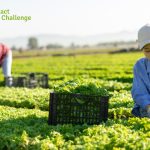
Revitalizing Indonesia’s Villages: A Sustainable Agriculture Framework to Counter Youth Outmigration
August 12, 2025Clean Markets, Bright Energy: The Future of Biogas from Indonesian Traditional Markets
Written by Nilna Afillah
Indonesia’s journey toward energy transition is often framed around solar, wind, or hydropower. Yet, one overlooked solution lies in the heart of our communities — traditional markets. Every day, thousands of tons of organic waste are discarded in Indonesian markets, emitting greenhouse gases and overwhelming landfills. What if this waste could be turned into energy instead? Enter the idea of biogas komunal — a communal biogas system that transforms organic market waste into clean, usable energy.
This concept, while already successful in countries like India, Germany, and Japan, has not gained significant traction in Indonesia despite its massive potential. The model is simple: place a small-to-medium scale anaerobic digester near a traditional market, feed it with daily organic waste like rotten vegetables, fruit peels, and leftover food, and let the natural fermentation process produce methane-rich biogas. This gas can be used for cooking, heating, or even generating electricity.
Why Market-Based Biogas Is a Game-Changer for Indonesia
Indonesia has over 13,000 traditional markets with millions of vendors and visitors every day. According to the Indonesian Ministry of Environment and Forestry (2021), traditional markets contribute to over 60% of urban organic waste. In large cities, one market alone cangenerate up to 5–10 tons of biodegradable waste daily. If even a small fraction of these markets adopted biogas technology, the environmental and economic benefits would be immense.
The biogas komunal approach is decentralized, making it perfect for a country with vast geographic diversity. Communities can operate and maintain these systems independently. Additionally, this model supports Indonesia’s National Energy Policy, which targets 23% renewable energy use by 2025. It also aligns with the Sustainable Development Goals (SDGs), especially SDG 7 (Affordable and Clean Energy), SDG 11 (Sustainable Cities and Communities), and SDG 13 (Climate Action).
Learning from Global Success
In India, community-based biogas systems in Mumbai and Pune convert market and kitchen waste into cooking gas for local schools and community kitchens. Germany has integrated farm and food waste into its decentralized biogas network, powering homes and businesses. Japan leverages similar systems for both waste reduction and energy resilience.
Indonesia has the infrastructure and technical capacity to replicate these successes. Universities and startups are already piloting anaerobic digestion projects in rural areas.
What’s missing is a coordinated policy push and public awareness campaign that connects market operators, local governments, and clean energy stakeholders.
Barriers to Implementation — and How to Overcome Them
So why hasn’t this idea taken off in Indonesia?
- Lack of Awareness and Training: Many market managers and local authorities are unfamiliar with how biogas works or its benefits. Public campaigns and government-backed training are necessary.
- Initial Investment Concerns: While long-term savings are significant, upfront costs for digesters and storage infrastructure can be daunting. A possible solution is public-private partnerships or CSR programs focused on environmental innovation.
- Policy Gaps: There are few clear incentives or subsidies for small-scale renewable energy projects involving waste-to-energy. Integrating biogas support into urban planning and energy regulations could unlock progress.
- Maintenance and Operation Fears: Communities fear being left with systems they cannot manage. This can be solved with capacity-building programs and locally hired technicians.
CIIC 2025: A Platform for Community-Led Innovation
The Climate Impact Innovations Challenge (CIIC) 2025 presents the perfect opportunity to elevate this idea. With its themes of Energy Transition and Circular Economy, CIIC 2025 encourages disruptive, grassroots solutions that solve real problems. Biogas komunal is precisely that: a people-powered, environmentally sound, and economically viable solution.
Through CIIC, communities can gain visibility, funding, and mentorship to pilot and scale these systems. The competition also provides a platform to link clean energy innovators with local policymakers and private sector backers.
From Trash to Treasure: Reimagining Indonesian Markets
The transformation of Indonesia’s traditional markets into centers of clean energy production is not just a technical possibility — it’s a cultural and environmental imperative. This approach respects Indonesia’s communal values, supports local livelihoods, and provides a scalable solution to our urban waste and energy challenges.
Let us imagine a future where the morning market bustle doesn’t just fill baskets, but also fuels stoves, lights homes, and cleans the air. A future where every rotten banana or wilted spinach becomes a source of power. It’s time for Indonesia to unlock the energy hidden in our daily habits and lead the way in Southeast Asia’s waste-to-energy movement.
Biogas from traditional markets: clean markets, bright energy.
Nilna Afillah is a runner-up of the Climate Impact Innovations Challenge 2025 Article Competition.


